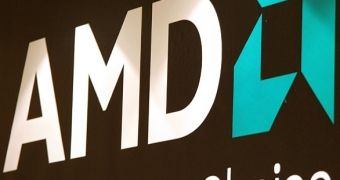News of AMD having delayed its processors yet again are not much of a surprise anymore. Back in 2007 it was a common company policy for AMD to delay its processor lines multiple times. Finally, when they got on the market, it was noticed that they were severely crippled by the Translation Lookaside Buffer erratum.
Those who have expected for AMD to stick to its promises during this year should be disappointed. The chip manufacturer stated that its 2.4GHz quad-core Phenom 9700 and 2.6GHz Phenom 9900 have both been delayed until the second quarter of 2008. AMD refused to elaborate on the impact this will have upon the introduction of the 2.8GHz and 3GHz processors that are scheduled for release in late Q2.
According to the company's statements, AMD has a working Phenom processor but it would rather work on it some more, to improve its power efficiency over performance. Although the official specifications for the new chip have not been disclosed, the company has confirmed that the upcoming Phenom 9100E will be a low-power chip to work at an unknown frequency.
Since the Phenom 9500 is working at 2.3GHz and features a thermal envelope of 95W, it is assumed that the new processor will be situated around a thermal dissipation power value of 65W. Also, it is believed that the clock speed will reach 1.8GHz.
Rumor has it that AMD is keeping the Phenom 9700 and 9900 off the production line because of a potential delay with processor's B3 stepping, supposed to fix the notorious Translation Lookaside Buffer erratum. Otherwise, the manufacturer would have to resort to shipping B2 9700/9900 units immediately followed by another batch of newer, B3 9700/9900 parts.
The bad news doesn't stop here, as unofficial reports claim that AMD won't be able to ship 45nm parts in volume until early 2009. It seems that this is partly because the conversion of Fab 30 (producing 65nm/90nm chips) to Fab 38 (working at the 45nm node) is in an early stage. Also, the Shanghai core has not been built on silicon yet.

 14 DAY TRIAL //
14 DAY TRIAL //